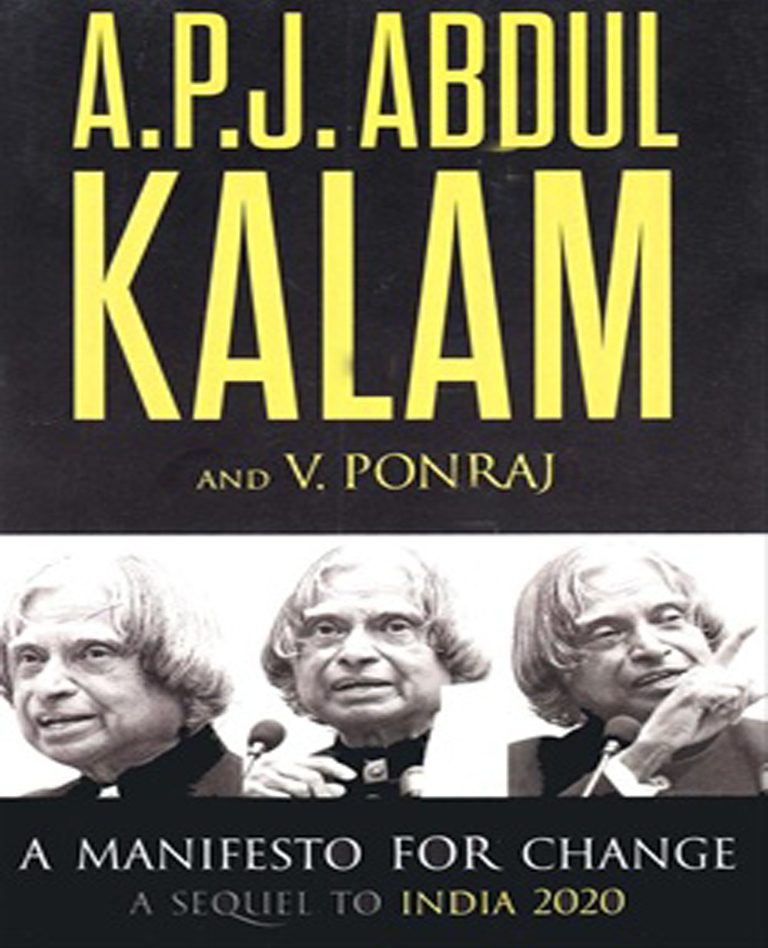You must be logged in to post a review.
A Manifesto For Change
by Apj Abdul Kalam
Description:
In 1998, a book was published that was surprisingly ahead of its times. It was called India 2020 and proposed that India could soon be one of the top five economies of the world. The nation had set off a series of nuclear tests and was facing worldwide sanctions. A new government had taken charge, and the economy was facing a tough time. It was not the best of times to predict that India had it in her to get on the fast track to development. The vision presented in the book would go on to inspire, directly or indirectly, many sectors of the economy to work for and achieve high growth. The book has since sold hundreds of thousands of copies.
In A Manifesto for Change, its author A.P.J. Abdul Kalam, writing with co-author V. Ponraj, offers a sequel. As focused then as now on his dream of a developed India by 2020, the eleventh President of India examines what we need to get right to accomplish that essential goal: harnessing the stupendous energy of our youth to contribute to growth, a united Parliament that makes full use of its time for constructive debate and rises above petty party politics to achieve the larger national vision, and a plan of action that looks at development from the grassroots to giant strides in infrastructure and bridging the urban-rural disparity. It is time to leave behind the politics of antagonism and disruption behind, he suggests. As reward: a developed India as befits this beautiful land.
About The Author
Avul Pakir Jainulabdeen “A. P. J.” Abdul Kalam; (15 October 1931 27 July 2015) was the 11th President of India from 2002 to 2007. A career scientist turned politician, Kalam was born and raised in Rameswaram, Tamil Nadu, and studied physics and aerospace engineering. He spent the next four decades as a scientist and science administrator, mainly at the Defence Research and Development Organisation (DRDO) and Indian Space Research Organisation (ISRO) and was intimately involved in India’s civilian space programme and military missile development efforts. He thus came to be known as the Missile Man of India for his work on the development of ballistic missile and launch vehicle technology. He also played a pivotal organisational, technical, and political role in India’s Pokhran-II nuclear tests in 1998, the first since the original nuclear test by India in 1974.
Kalam was elected as the 11th President of India in 2002 with the support of both the ruling Bharatiya Janata Party and the then-opposition Indian National Congress. Widely referred to as the “People’s President,” he returned to his civilian life of education, writing and public service after a single term. He was a recipient of several prestigious awards, including the Bharat Ratna, India’s highest civilian honour.
While delivering a lecture at the Indian Institute of Management Shillong, Kalam collapsed and died from an apparent cardiac arrest on 27 July 2015, aged 83. Thousands including national-level dignitaries attended the funeral ceremony held in his hometown of Rameshwaram, where he was buried with full state honours









Reviews
There are no reviews yet.